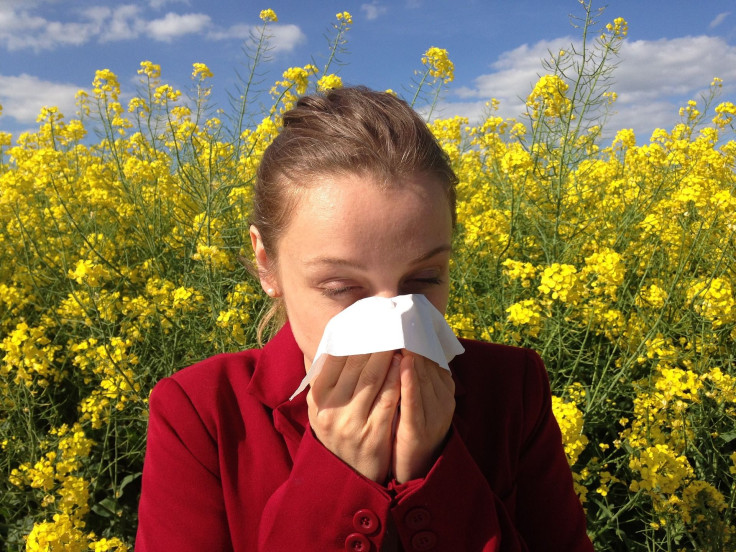5 Tips To Cope With Allergies: Early Start To Spring Makes Seasonal Allergies Worse For Sufferers

Spring has graced the East Coast with its presence 20 days before the official start of the season with warmer temperatures and early blooms. However, the great weather brings some not-so-great consequences like seasonal allergies.
Read: Allergy Cure 2017: 3 Years Of Pollen Pills, Injections Can 'Suppress' Hay Fever Symptoms
Alan Reppert, senior meteorologist at AccuWeather, explains the warm late February weather made it possible for plants to grow, causing the pollen season to extend by about 10-20 days. Most allergy-causing pollen comes from trees, weeds, and grass, according to the Asthma and Allergy Foundation of America, which means they’re nearly impossible to avoid. Here are five ways to prevent seasonal allergies before they become a problem:
Check The Pollen Count
It’s not as complicated as it sounds. Just head to the American Academy of Allergy Asthma & Immunology's website to check your city’s predicted levels. Pollen.com also has a national forecast with daily updates on which cities are best for allergy sufferers. Try to stay indoors during the morning when pollen counts are usually highest, advises MayoClinic.
Have A Drug Stash
The hospital also recommends keeping your favorite allergy medication on-hand for high pollen days and to start popping them even before symptoms start.
Read: Eating These 5 Foods Will Lower Your Stress Level
Rinse Pollen Down The Drain
Pollen can cling to skin, hair and clothes. Be sure to hop in the shower and change your clothes as soon as you get home.
Take A Probiotic
According to a recent study, taking a probiotic including the unpronounceable Lactobacillus gasseri, Bifidobacterium bifidum, and Bifidobacterium longum, relieved allergy symptoms when taken alone during peak pollen season. Researchers stress it was this particular combination that alleviated allergies.
Get Over Your Fear Of Needles
Health magazine reports that acupuncture is thought to help allergy sufferers. “I’ve seen amazing results in my allergic patients,” Roberta Lee, MD, vice chair of the Department of Integrative Medicine at the Beth Israel Medical Center, in New York City tells the magazine. She believes it works by reducing stress hormones, which helps with inflammation.
See Also:
Prebiotics In These 8 Foods Could Help Reduce Stress-Induced Sleep Problems
The Best Vitamins For Skin Health: Why You Should Be Taking Vitamins A, C, And E



























